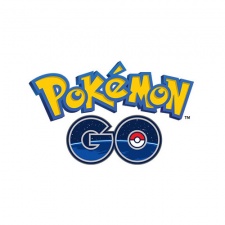Theo Tsangaris is a PR & Marketing Consultant at London agency Big Games Machine.
Pokemon Go is changing the landscape of gaming.
It's the latest in a long line of record-breaking, hype-driven games that's almost impossible to escape.
Game developers can only dream of getting the same amount of attention that Pokemon Go has received, with Nintendo's valuation soaring by over 50% since the game's initial release.
Whether Pokemon Go goes the way of Flappy Bird or Draw Something or any of the other over-hyped games remains to be seen.
What is very clear though, is that Pokemon was a recipe for success waiting to explode.
From the jaws of defeat
Just as it seemed like Nintendo was on the cusp of irrelevancy with the underperforming, poorly marketed Wii U, it bounced back in near-perfect fashion with a title gamers had no idea they even wanted.
In Pokemon Go, Nintendo has the perfect mix of nostalgia and innovation - largely thanks to its alignment with developers Niantic Labs.
Niantic Labs was a company that started life within Google, with engineers who had created on Google Maps.
It also launched two location-based apps - Ingress and Field Trip - which laid the foundation for Pokemon Go, before spinning out of Google in 2015.
Ingress received a fair amount of media interest around the time that it launched for its innovative approach to real-world gaming.
Pokemon Go is essentially Ingress on heat.
Perfect conditions
This really gets to the heart of why Pokemon Go is a perfect storm of hype.
Pokemon Go is essentially Ingress on heat.
Even before the game came out, it had the perfect mix of companies involved.
Back in October 2015, Ingress announced that The Pokémon Company, Google and Nintendo were investing $30 million into Pokemon Go and building other real-world games.
Essentially, this was announcing that all companies believed in the game so much that they were taking a stake in Niantic.
There was an unbelievable amount of hype in the run-up to the release of Pokemon Go.
This was largely due to 20-years worth of nostalgia that's been generated through 100 million global game sales, making it the second-biggest video game series of all time (after Nintendo's Mario series).
This was then coupled with the high levels of expectation and excitement that Nintendo was about to release a major IP on a non- Nintendo platform.
Finally, there was the incredibly large amount of goodwill towards Nintendo, from those praying for some kind of rejuvenation.
Real-world delight
But what truly elevated the hype was the stories, driven by issues with the game and the fans, amplified by the media.
In a world gone Pokemad, drones are carrying phones, people are quitting jobs to become Pokemon masters, falling off cliffs and finding dead bodies; ludicrous stories are taking the internet by storm.
The sense of being part of something and camaraderie that the game has generated has been incredibly unique.
Even if you don't care about games or Pokemon, watching hordes of fans storming Central Park to catch a Dilophosaurus-esque creature made headlines worldwide.
And to top it off, the sheer number of server and in-game issues have been so prevalent, even they've made their way into mainstream press.
There have been other side effects that have helped the hype. The sense of being part of something and camaraderie that the game has generated has been incredibly unique.
Bonding and real-world exploration by teens who would otherwise be playing games indoors, children with their parents and other groups who are getting outside more than normal.
And that is precisely why most games may never reach this level of mania again - at least until Magic Leap or one of the other tech companies perfects Mixed Reality goggles/glasses.
It doesn't matter what's going wrong or what crazy things people are doing. It's the perfect marriage between Nintendo, Niantic Labs and Pokemon for the 21st century, mobile-first audience, and it works.
Synergetic
Pokemon Go took the established mobile game marketing rulebook and threw it out the window.
Nintendo's strategy was built on the buzz of fans reacting to an initial trailer, no more, no less.
This isn't the first entry by Pokemon into mobile games. Pokemon Shuffle took the tried and tested mobile game marketing strategy.
Yet, because it was a standard 'match three' puzzler - rather than a partnership with Nintendo to bring something new - it has had nowhere near the level of buzz or success.
In a world that has becoming saturated with puzzle games and city-building/combat strategy games, Pokemon Go has blended together a major IP with a completely new kind of gameplay.
What's next?
When developers launch their own games they would traditionally create a launch plan right from the offset, which will in turn dictate what marketing activities and social media content (largely by way of reveals) will be released and when.
Pokemon Go has blended together a major IP with a completely new kind of gameplay.
For example, if a marketing plan indicates a September launch, developers will likely want to reveal their first teaser trailer as early as January, with the subsequent February and March months used to drip-feed additional information coming from that initial trailer.
You can implement all the marketing strategies and techniques required to break through the plethora of noise of the mobile games market, but at the end of the day, innovation combined with the second biggest games franchise of all time trumps all.
When winter comes, will Pokemon Go still be the phenomenon that it is today?
The future is still unclear.
But even declining player-bases and a mass-reduction in installs - those are massive stories in themselves, and thus the cycle continues.






















